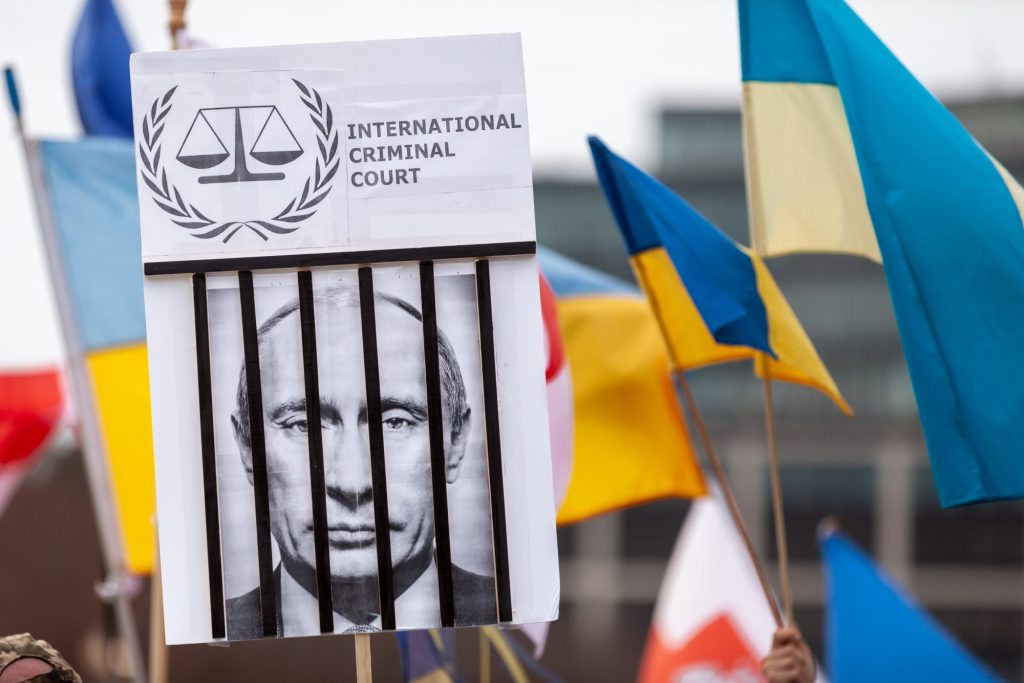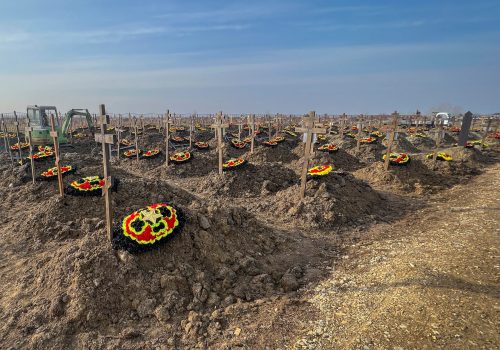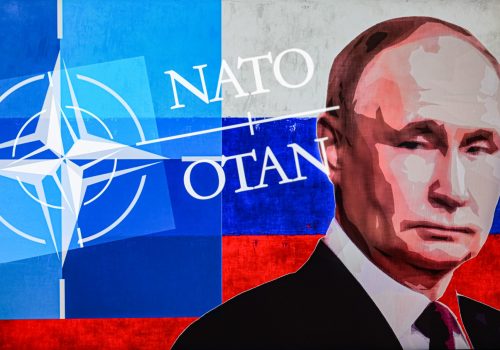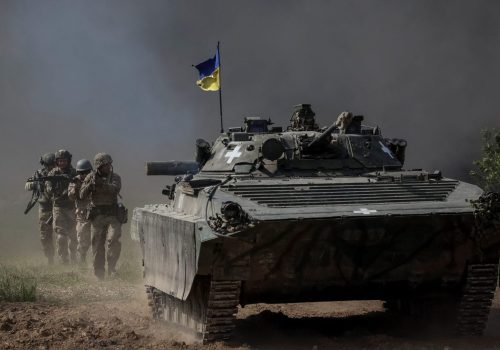Will Vladimir Putin dare to visit the BRICS summit in South Africa this August? In previous years, his attendance would have been taken for granted, but war crimes charges brought by the International Criminal Court in March 2023 are fueling speculation that he could face arrest if he decides to risk the trip. As a signatory to the Rome Statute that established the ICC, South Africa is technically obliged to arrest Putin.
Reports this week suggest the South African government may be seeking to bypass its obligations to the ICC by granting all summit participants diplomatic immunity, but officials also stressed that immunity “does not override any warrant that may have been issued by any international tribunal against any attendee of the conference.” Even if Putin receives assurances that he will not be detained in Cape Town itself, traveling to the summit would involve considerable uncertainty due to the potential for emergency landings in numerous other jurisdictions where apprehension would be possible.
Many commentators still regard the entire notion of arresting Vladimir Putin as somewhat far-fetched. Nevertheless, the fact that his travel plans are now being shaped by the likelihood of detention speaks volumes about the Russian dictator’s dramatic fall from grace. Ten years ago, Putin was a member of the elite G8 group of world leaders and a permanent fixture at the top table of international affairs. Today, he is a wanted war crimes suspect who cannot leave his own country without first checking that he will not end up in jail.
On the rare occasions when Putin has traveled abroad since launching the invasion of Ukraine in February 2022, his interactions with other heads of state have tended to underline his reduced status. For years, Putin was notorious for making world leaders such as Angela Merkel, Donald Trump, and Pope Francis wait while he arrived hours after the appointed time. With his position seriously undermined by the disastrous war in Ukraine, Putin is now the one doing the waiting. During a September 2022 conference in Uzbekistan, the leaders of Turkey, Azerbaijan, India, and Kyrgyzstan all left Putin standing as they arrived fashionably late for bilateral meetings.
Stay updated
As the world watches the Russian invasion of Ukraine unfold, UkraineAlert delivers the best Atlantic Council expert insight and analysis on Ukraine twice a week directly to your inbox.
Putin’s geopolitical isolation looks even uglier when compared to the remarkable recent international ascent of his nemesis, Ukrainian President Volodymyr Zelenskyy. In recent weeks, Zelenskyy has been lionized during high-profile visits to Rome, Berlin, Paris, and London; he has grabbed the headlines at the Arab League summit in Saudi Arabia and was the center of attention at the G7 summit in Japan. While everyone apparently wants to be seen alongside the Ukrainian leader, very few appear eager to stand with Putin.
This is not just a problem for Putin alone. Indeed, the toxicity engulfing his personal reputation has also led to Russia’s international ostracism. When the owner of popular dating apps Tinder and Hinge announced its departure from the Russian market in May 2023, company officials made clear that they could not afford the reputational damage of association with Vladimir Putin. “It’s not a good look for a trusted brand to be continuing operations in a nation where the head of state has been indicted by the International Criminal Court,” commented Match Group executive director Jeff Perkins.
Dating apps are only the tip of the iceberg, of course. A long list of global brands including McDonald’s, Coca-Cola, Nike, and Starbucks have exited or begun the process of leaving Russia since the full-scale invasion of Ukraine began in February 2022. European countries have pivoted away from Russian energy imports, leading to an historic loss of market share for the Kremlin. Russia is also finding it increasingly difficult to source the spare parts it needs to keep its war machine rolling due to chronic shortages caused by the unprecedented sanctions imposed by the West over the attack on Ukraine.
None of this was anticipated by Putin when he first gave the order to invade Ukraine early last year. Based on his prior experience of Western weakness following the 2008 invasion of Georgia and the 2014 seizure of Crimea, Putin fully expected the democratic world to respond to his latest act of international aggression with vocal protests and symbolic sanctions before getting back to business as usual. This was an extremely costly miscalculation that has left Russia more isolated than at any time since the immediate aftermath of the Bolshevik Revolution one hundred years ago.
Eurasia Center events

As something of an amateur historian, Putin must be painfully aware that he has brought his own country to one of its lowest points in centuries. He has long been preoccupied with his place in Russian history and has authored a number of lengthy historical essays that have been carefully crafted to justify his own deeply revisionist worldview. This obsession with the past has defined Putin’s entire reign and lies at the heart of his fateful decision to launch the full-scale invasion of Ukraine.
Since coming to power at the turn of the millennium, Putin has consistently expressed his bitterness over the perceived historical injustice of the Soviet collapse. This has fed a vicious contempt for Ukrainian statehood, which he has come to view as the primary obstacle to his sacred mission of reuniting “historical Russia.” Putin is notorious for claiming Ukrainians are actually Russians (“one people”), and has called Ukraine “an inalienable part of Russia’s own history, culture, and spiritual space.” In February 2022, he resolved to settle the matter once and for all.
From the very beginning of Russia’s invasion, the baleful influence of Putin’s historical baggage has been abundantly clear. Russian Foreign Minister Sergei Lavrov acknowledged this on day one of the war, when he reportedly quipped that Putin only has three advisors: “Ivan the Terrible, Peter the Great, and Catherine the Great.” Speaking months later in summer 2022, Putin confirmed the accuracy of Lavrov’s observation by publicly comparing his invasion to the eighteenth century imperial conquests of Czar Peter.
With the war now in its sixteenth month, it is fair to say things have not gone according to plan for the would-be conqueror. Putin originally envisioned a blitzkrieg campaign that would rapidly extinguish Ukrainian independence and mark the dawn of a new Russian Empire. Instead, his soldiers have suffered a string of humiliating defeats that have shattered Russia’s reputation as a military superpower, and stand accused of sickening war crimes that have horrified the watching world.
For now, Putin remains defiant and insists his war aims will eventually be achieved, but it is difficult to see how Russia can hope to repair the damage done to its international standing. Instead, the decision to invade Ukraine looks set to be remembered as one of the greatest geopolitical blunders of the modern era. It has left Russia shunned and greatly diminished on the world stage, while earning Putin himself a place in infamy alongside history’s greatest criminals. He dreamed of emulating Peter the Great, but he has become Putin the Pariah.
Peter Dickinson is Editor of the Atlantic Council’s UkraineAlert Service.
Further reading
The views expressed in UkraineAlert are solely those of the authors and do not necessarily reflect the views of the Atlantic Council, its staff, or its supporters.

The Eurasia Center’s mission is to enhance transatlantic cooperation in promoting stability, democratic values and prosperity in Eurasia, from Eastern Europe and Turkey in the West to the Caucasus, Russia and Central Asia in the East.
Follow us on social media
and support our work
Image: A sign at a rally for Ukraine at the White House shows Russian President Vladimir Putin in prison and calls for him to be prosecuted by the International Criminal Court. (Photo by Allison Bailey/NurPhoto)




